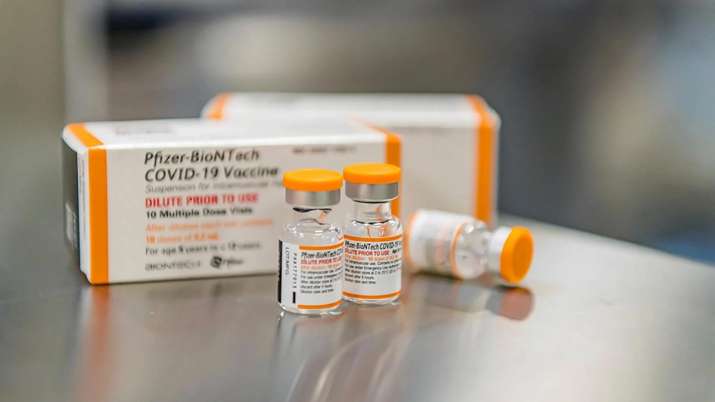
FDA paves the way for Pfizer COVID-19 vaccination in young children
The Food and Drug Administration on Friday paved the way for children ages 5 to 11 to get Pfizer’s COVID-19 vaccine. The FDA approved kid-sized doses — just one-third of the amount given to teens and adults — for emergency use, and up to 28 million more American children could be eligible for vaccination as early as next week.
Another regulatory hurdle remains: On Tuesday, advisers from the Centers for Disease Control and Prevention will make more detailed recommendations on which youth should get vaccinated, with a final decision to be made by the agency’s director shortly thereafter.
“With this vaccine kids can go back to something that is better than being locked up at home on distance schooling, not being able to see their friends,” said Dr Kausar Talat from Johns Hopkins University. “The vaccine will protect them and protect our communities as well.”
Some countries have started using other COVID-19 vaccines in children under the age of 12, including China, which has just started vaccination for children as young as 3 years old. But many people using the vaccine made by Pfizer and its partner BioNTech are watching the US decision, and European regulators are beginning to consider the companies child-sized doses.
With the FDA’s action, Pfizer plans to start shipping millions of vials of the children’s vaccine — in orange caps — to avoid mix-ups with purple-capped doses for all others — including doctors’ offices, pharmacies and pharmacies. at other vaccination sites. Children will get two shots, three weeks apart.
While children are at a lower risk of serious illness or death from COVID-19 than older people, children ages 5 to 11 are still severely affected – with more than 8,300 hospitalized, nearly a third of whom have been severely affected. Care is required, and about 100 deaths occur. According to the FDA, since the start of the coronavirus pandemic.
And with the spread of the extra-infectious delta variant, the government has counted more than 2,000 coronavirus-related school closures since the start of the school year, affecting more than a million children.
Earlier this week, the FDA’s independent scientific advisors voted that the promised benefits of a pediatric vaccine outweigh any risks. But several panelists said not all young people would need vaccination, and they preferred that shots be targeted to those at higher risk from the virus.
According to federal tracking, about 70% of 5- to 11-year-olds hospitalized for COVID-19 in the US have other serious medical conditions, including asthma and obesity. Additionally, more than two-thirds of young people hospitalized are black or Hispanic, reflecting long-standing disparities in the impact of the disease.
The question of how widely Pfizer’s vaccine should be used will be an important consideration for the CDC and its advisors, who set formal recommendations for pediatricians and other medical professionals.
A Pfizer study of 2,268 schoolchildren found that the vaccine was about 91% effective in preventing symptomatic COVID-19 infection, based on 16 cases of COVID-19 in children given the dummy shot compared to three children who were vaccinated.
The child supplements also proved safe with similar or less temporary reactions — such as sore throat, fever or pain — that teens experience.
But the study was not large enough to detect any extremely rare side effects, such as heart swelling that sometimes occurs after a second full-strength dose, mostly in young men and teenage boys. It’s not clear whether young children taking smaller doses will face even that rarefied risk.
Some parents are expected to vaccinate their children before family holiday celebrations and the cold winter season.
But a recent survey by the Kaiser Family Foundation shows that most parents won’t rush to get shots. About 25% of parents who voted earlier this month said they would get their children vaccinated “immediately”. But the majority of remaining parents were broadly divided between those who said they would wait to see how the vaccine performed and those who said they “definitely” would not vaccinate their children.
A similarly made Moderna vaccine is also being studied in young children, and both Pfizer and Moderna are testing shots for infants and preschoolers.
Read also:10 US states sued Biden administration over COVID-19 vaccine rule
.